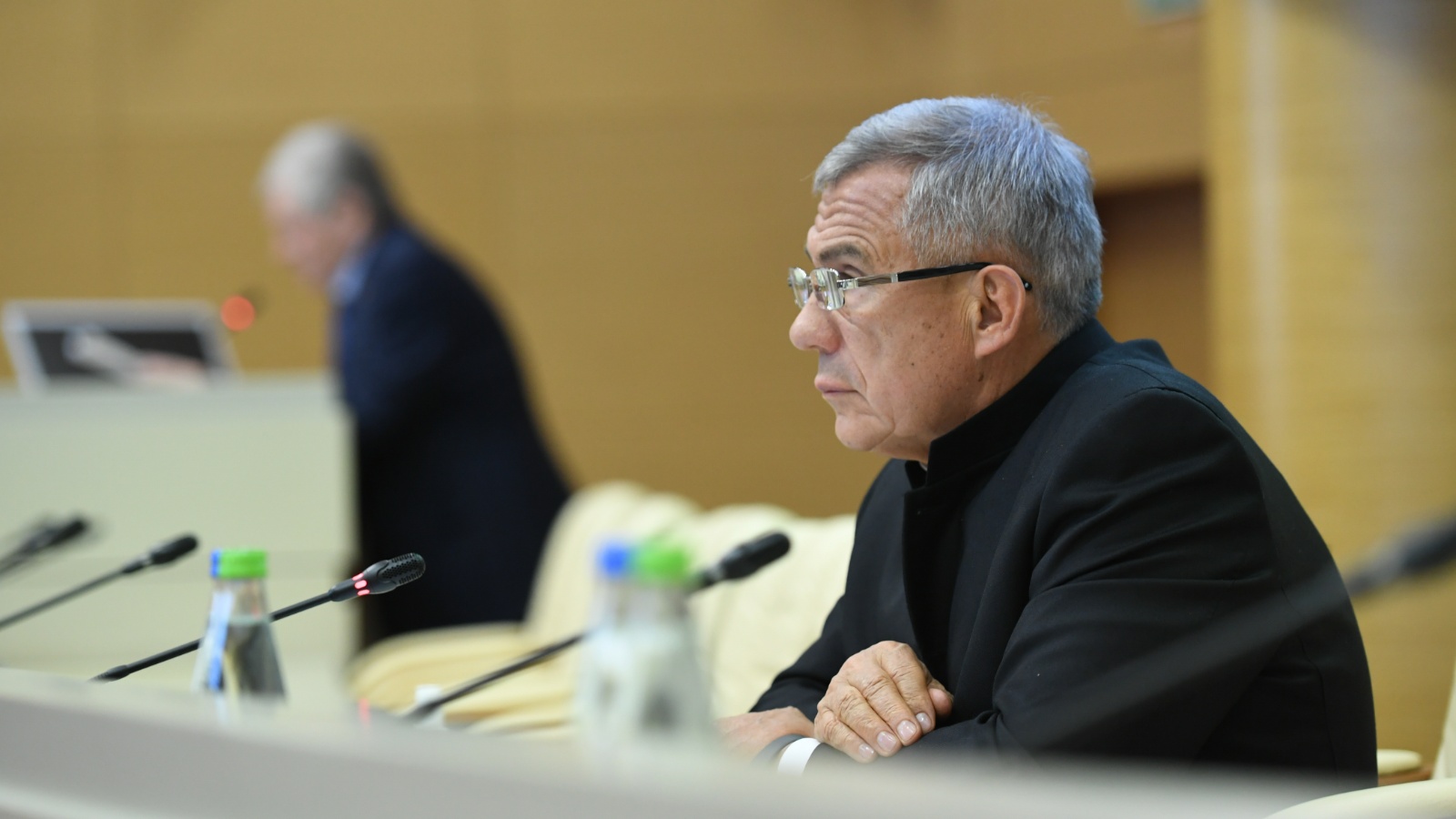A regular meeting of the Board of Directors of Tatneftekhiminvest-holding JSC was held

In Tatarstan, in the 1st quarter, oil production increased by 20%, refining - by 10%
The basic enterprises of the petrochemical complex of Tatarstan in the first quarter of 2022 increased their total production by 9.1% compared to the same period last year. A report on this was made at a meeting of the Board of Directors of JSC "Tatneftekhiminvest-holding" by the General Director of the company Rafinat Yarullin.
The meeting was chaired by the President of the Republic of Tatarstan Rustam Minnikhanov.
Thus, according to the results of the 1st quarter, Tatneft increased oil production by 9.5%. The total output of oil refineries TANECO (Tatneft Group) and TAIF-NK increased by 20%.
In the sector of chemistry and petrochemistry, an increase of 1.7% was noted.
In the first quarter, there was an increase in prices for most types of products of the petrochemical complex, which ensured an increase in financial results. Difficulties in the export of products, an increase in delivery times and the cost of purchasing imported materials and components had a negative impact on the work of companies.
The departure of some foreign manufacturers from Russia and the need for import substitution create opportunities to expand the presence of individual Tatarstan companies in the domestic market. To search for potential suppliers and consumers, new services have been developed on the platforms of the Republican Marketing Center and the Federal Import Substitution Exchange.
Tatarstan is supporting petrochemical enterprises in the context of logistical and sanctions restrictions, the report says. The Ministry of Industry and Trade of the Republic of Tatarstan, together with Tatneftekhiminvest-holding, enterprises and scientific organizations, has compiled a list of the most popular products to ensure stable operation. Ways to solve problematic issues are being worked out.
The price of mineral fertilizers more than doubled. Price growth was held back in the plastics and rubber sectors due to problems in the automotive sector. Russia, on the other hand, is faced with trends in the regionalization of hydrocarbon supplies in the world, an increase in the cost of raw materials and a shortage of personnel in the petrochemical industry.
Kazan Federal University (KFU) has developed import-substituting chemicals to improve the efficiency of hydrocarbon production and transportation.
An educational cluster will be created in the Mendeleevsky region of the Republic of Tatarstan together with the Kazan Institute of Chemical Technology (KNRTU-KHTI) and the fertilizer manufacturer AMMONIY JSC. This was reported by acting. head of the district, head of the executive committee Radmir Belyaev. It is planned to create a specialized lyceum, a college and an advanced engineering school. A program to attract teachers is being developed in the Mendeleevsky District. This should reduce the outflow of young people and the shortage of personnel at the city-forming plant "Ammoniy" and the Karpov Chemical Plant.
Mikhail Nadeev, Deputy General Director and Technical Director of Polymagnet LLC, proposed organizing the production of permanent magnets from an alloy of samarium-cobalt for the oil and gas and chemical industries. SmCo magnets are a niche but very important product (the main manufacturer is China). Microwave devices, submersible equipment for oil production, electric motors for military equipment are equipped with magnets. The Moscow company is part of the research and production group of companies AMT&C.
Rustam Minnikhanov proposed to work out this import-substituting project with the Alabuga SEZ.”
Materials of the news agency "Devon" were used